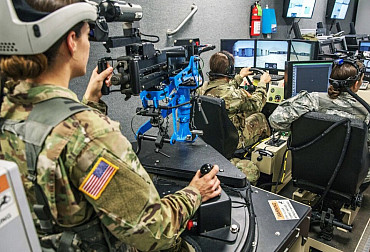Iran's detainment of vessel linked to Israel sparks international tensions
On a tense Saturday morning, the Iranian Revolutionary Guard Corps (IRGC) took bold action by seizing the container ship MSC Aries in the strategic waters of the Gulf of Oman. This move has not only heightened the existing geopolitical tensions but also raised significant concerns regarding maritime security and international law.
Details of the Incident
The MSC Aries, a container ship linked to Israeli billionaire Eyal Ofer's Zodiac Maritime, was operating about 50 nautical miles northeast of Fujairah in the United Arab Emirates when it was intercepted. The British military service UKMTO reported that the vessel was "allegedly detained by regional authorities," and issued a cautionary notice to all vessels navigating the area to remain vigilant and report any suspicious activities.
The operation's style—carried out via helicopter—initially suggested similarities to past pirate attacks by Yemen's Houthi rebels, who are supported by Iran. However, the Iranian Revolutionary Guards quickly claimed responsibility, marking a significant escalation in the use of state power to directly confront commercial shipping associated with its adversaries.
International Reaction
The reaction to the seizure was swift. Israeli Foreign Minister Israel Katz vehemently condemned the act, describing it as a "piratical operation" that starkly contravenes international norms and laws. Katz has called upon the European Union and the global community to recognize the Iranian Revolutionary Guards as a terrorist organization, urging the imposition of stringent sanctions.
Possible Motives and Broader Implications
This incident could potentially be tied to Iran's vowed retribution for the recent bombing of its consulate in Damascus, which led to the deaths of several high-ranking officers. The attack, which Iran attributes to Israel, has further strained the already volatile relations between the two nations.
The IRGC's actions may also be viewed as part of a broader strategy to exert control over a critical commercial and energy transit route. The Gulf of Oman, connecting to the Strait of Hormuz, sees a significant portion of the world's oil supply pass through it. By targeting shipping in this region, Iran possibly aims to signal its capability and readiness to disrupt maritime traffic, thereby exerting pressure on international markets and global powers.
U.S. and Global Stance
The United States, under President Joe Biden, has responded with a stern warning to Iran against escalating aggression towards Israel. "Don't do it. We will support Israel. We will help defend Israel, and Iran will not succeed," President Biden asserted, highlighting the U.S.'s commitment to its ally and the importance of maintaining stability in the region.
The UK and other Western nations are closely monitoring the situation, considering further military and diplomatic responses to safeguard maritime routes and uphold international law.
Conclusion
The detention of the MSC Aries not only disrupts the immediate security of global shipping lanes but also poses a stark challenge to the rules-based international order. As the world watches, the implications of Iran's actions could extend far beyond the immediate tactical impact, influencing geopolitical dynamics in the Middle East and potentially leading to an escalation of military and economic confrontations. The international community now faces the critical task of addressing this challenge through diplomacy and strategic deterrence to ensure regional stability and the security of vital maritime pathways.










